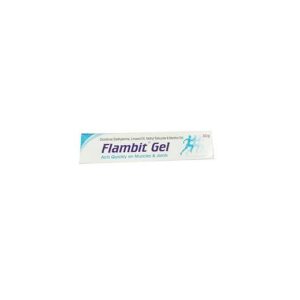DICLOFENAC DIETHYLAM INE + LINSEED
Diclofenac Diethylam Ine: Diclofenac Diethylamine is a nonsteroidal anti-inflammatory drug (NSAID) used to relieve pain, inflammation, and swelling. It belongs to a class of drugs known as diclofenac, which work by reducing the production of certain chemicals in the body that cause pain and inflammation.
It is commonly used to treat conditions such as osteoarthritis, rheumatoid arthritis, ankylosing spondylitis, and acute gout. It can also be prescribed for the relief of post-operative pain, menstrual cramps, and migraines.
The mechanism of action of Diclofenac Diethylamine involves inhibiting the enzyme cyclooxygenase (COX), which is responsible for the synthesis of prostaglandins. Prostaglandins are the chemicals in the body that cause pain, inflammation, and fever. By reducing the production of prostaglandins, Diclofenac Diethylamine helps to alleviate these symptoms.
Diclofenac Diethylamine is available as a topical gel or solution, which is applied directly to the affected area of the body. The recommended dose is typically 2-4 grams applied 3-4 times daily, depending on the severity of the condition. It is important to follow the instructions provided by the healthcare professional or as indicated on the product label.
As with any medication, Diclofenac Diethylamine can cause side effects. Common side effects may include skin irritation, rash, itching, and dryness at the application site. In rare cases, it can cause more serious side effects such as stomach ulcers, bleeding, liver damage, and allergic reactions. It is important to seek medical attention if any severe or persistent side effects occur.
It is essential to inform your healthcare provider about any pre-existing medical conditions, medications, or allergies before starting Diclofenac Diethylamine. This drug may interact with certain medications, including blood thinners, other NSAIDs, and certain antidepressants, increasing the risk of side effects.
In summary, Diclofenac Diethylamine is a nonsteroidal anti-inflammatory drug used to relieve pain, inflammation, and swelling associated with various conditions. It works by reducing the production of certain chemicals in the body. It is available as a topical gel or solution and should be used as directed. However, it is important to be cautious of potential side effects and interactions with other medications.
Linseed: Linseed, also known as flaxseed, is a medicinal herb that is derived from the flax plant (Linum usitatissimum). It has a long history of use for various health benefits and is commonly consumed as a food supplement for its rich nutritional profile.
Linseed is primarily used for its high content of omega-3 fatty acids, lignans, and fiber. These components have been linked to various health benefits, such as reducing inflammation, improving heart health, promoting healthy digestion, and supporting brain function.
The mechanism of action of linseed is attributed to its rich composition of alpha-linolenic acid (ALA), which is an essential omega-3 fatty acid. ALA has anti-inflammatory properties and can help balance the ratio of omega-3 to omega-6 fatty acids in the body. Additionally, the lignans found in linseed act as phytoestrogens and possess antioxidant properties, which may contribute to its health benefits.
Linseed can be consumed in various forms, including whole seeds, ground seeds, oil, or capsules. The recommended dose of linseed varies depending on the individual and the specific health condition being targeted. Generally, it is recommended to consume 1-2 tablespoons (10-20 grams) of ground linseed per day, along with plenty of water.
While linseed is generally safe for most people, it may cause some side effects. These side effects can include digestive discomfort, such as bloating, gas, or diarrhea, due to its high fiber content. Linseed may also interact with certain medications, so it’s important to consult with a healthcare professional before starting linseed supplementation.
In rare cases, some individuals may have an allergic reaction to linseed. Symptoms of an allergic reaction can include itching, rash, swelling, or difficulty breathing. If any of these symptoms occur, immediate medical attention should be sought.
Overall, linseed is a natural supplement that offers several potential health benefits, particularly for its omega-3 fatty acid content. However, it is important to use it as part of a balanced diet and consult with a healthcare professional for proper dosage and guidance.

